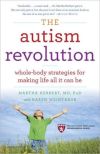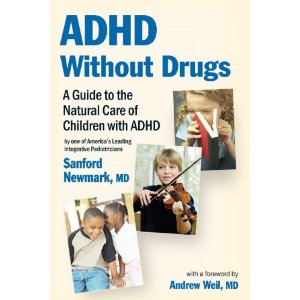Preventing Autism - 12 do's and don'ts before and during pregnancy
 Wednesday, June 12, 2013 at 2:25PM
Wednesday, June 12, 2013 at 2:25PM The Autism Revolution - whole-body strategies for making life all it can be by Martha Herbert, MD, PHD with Karen Weintraub, not only makes sense of current medical understanding of Autism, but  it offers some very specific suggestions. One of the questions I've been asked often is about prevention. What can a mom-to-be do to minimize the risk of her child suffering from autism? I've heard this question from mothers of those who are struggling as well as from future moms who realize that the statistics alone put everyone at a rather high risk. So I've collected here some of Dr. Herbert's suggestions, and I hope this will encourage you to read the whole book by yourself.
it offers some very specific suggestions. One of the questions I've been asked often is about prevention. What can a mom-to-be do to minimize the risk of her child suffering from autism? I've heard this question from mothers of those who are struggling as well as from future moms who realize that the statistics alone put everyone at a rather high risk. So I've collected here some of Dr. Herbert's suggestions, and I hope this will encourage you to read the whole book by yourself.
So here are a few things you can do before and during pregnancy. And yes, the book includes things you can do after your baby is born.
1. Eat organic foods, stay away from processed foods and from pesticides. Maintain a diet that is high in nutrient density and plant-based - try to consume veggies and fruit of many colors, high quality proteins and whole grains. See also http://www.fda.gov/Food/ResourcesForYou/HealthEducators/ucm081839.htm
http://www.fda.gov/Food/FoodborneIllnessContaminants/PeopleAtRisk/ucm083308.htm
2. Take a good prenatal vitamin. Supplements that are considered important are folic acid, essential fatty acids and vitamin D (did you know that a study showed a 60% increased risk of having a child with autism in women who did not take prenatal vitamins?). Consider also Zinc, vitamin B12 and Selenium
3. Avoid environmental triggers and foods that cause you allergy problems
4. Stay away from mold
5. Use green household products
6. Don't remodel your house now while you're pregnant. Remodeling introduces toxins to your environment.
7. Get a flu shot before getting pregnant
7. Avoid elective surgery, unnecessary medications and dental work.
8. Don't do a detoxification program during your pregnancy or even 6-12 months before becoming pregnant, if possible, because this may release substances that will then circulate in your body and may end up in your child
9. Avoid colds and other contagious bugs and the flu - wash your hands often, don't share food with others (that includes your kids, if you have any). Reduce your risk of getting insect-borne illnesses (long clothes can increase your protection from mosquitoes). Now is not a good time to travel to the tropics: minimize the risk of tropical diseases
10. Have someone else clean the cat box. Cats can transmit toxoplasmosis which can affect your child's brain.
11. Exercise regularly - an evening walk, gentle yoga etc.
12. Get plenty of sleep. These last two can reduce your stress - and stress during pregnancy is known to affect development.

